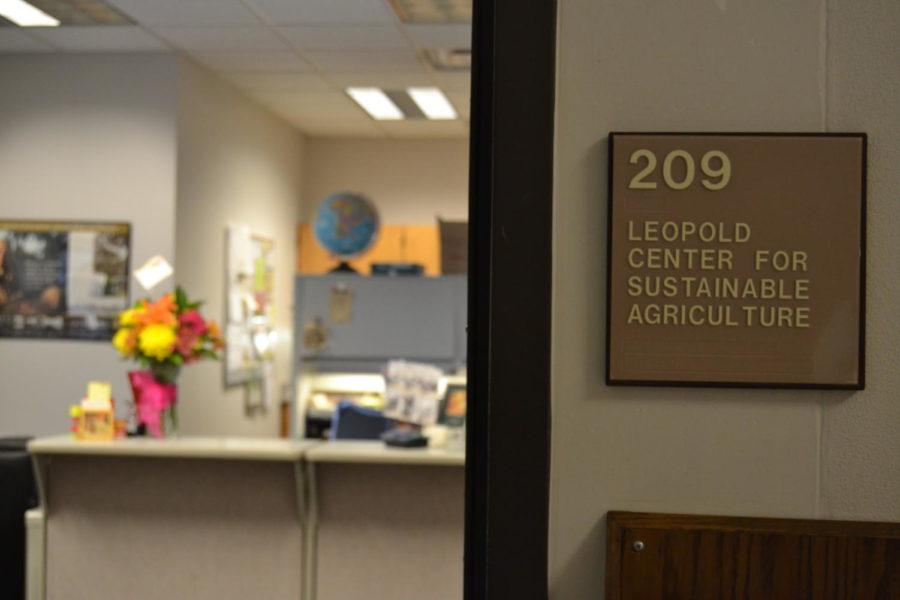- App Content
- App Content / News
- News
- News / Politics And Administration
- News / Politics And Administration / Campus
Leopold Center kept open, loses funding
May 13, 2017
Friday, Branstad used line-item vetoes on SF510 to preserve the existence of the Leopold Center. The language still in the bill, however, has left some confusion as to the fate of the center.
One section redirecting state funding from the Leopold Center to the Iowa Nutrient Research Center remained. Another appears to move jurisdiction of the center to the College of Agriculture and Life Sciences.
“The veto of these particularly specified items will preserve the existence of the Leopold Center for Sustainable Agriculture and Life Sciences to continue valuable research into environmental and water quality issues,” Branstad wrote in his veto message.
Senator Quirmbach said that he had filed multiple amendments to SF 510 and other legislation to preserve both the Leopold Center and some of its state funding, which the Senate ultimately rejected.
“Unfortunately the governor’s action did not restore any of the funding the Republican bill took away,” Quirmbach said in a release.
The bill states: “Until July 1, 2017, the Leopold Center for Sustainable Agriculture … shall not initiate any new activity … including but not limited to research grants and projects. … The Leopold center for sustainable agriculture shall cancel any existing grant or project that is not in the process of being immediately completed.”
This excludes canceling a grant or project that would result in a default of a legal or equitable obligation through a subcontract.
“We always have grants that are just beginning, grants that are in the middle of their life and grants that are finishing up,” Mark Rasmussen, director of the center, said in a previous interview.
Some of those grants have objectives that fit within the nutrient center’s jurisdiction, and could be transfered with the funding. Some were just beginning, and their fate is yet to be determined.
Quirmbach also addressed a section in the bill that transfers administration of Leopold activities to the Iowa State College of Agriculture and Life Sciences.
“I have initiated an inquiry to the governor’s office to determine whether or not the failure to veto this section was intentional and, if so, how the governor’s office intends for the Leopold Center to proceed,” Quirmbach said.
According to the language in the bill signed by Branstad, on and after July 1, 2017, when the new fiscal budget goes into affect, the College of Agriculture and Life Sciences will take over any ongoing activity from the Leopold Center, including administering and canceling grants. Any funding required to do so will come from the funding redirected to the nutrient research.
The college would then submit a report by January summarizing those ongoing activities and expenses and their expected completion date.
“For 30 years, the Leopold Center has offered hope, new knowledge and significant research findings to Iowa and the nation,” said Rasmussen in a release. “While we appreciate that the name and the Center will remain, the loss of all state funding severely restricts operations and our ability to serve our many stakeholders.”
Previously, Rasmussen related the center losing its funding but remaining open to being in a basement after a tornado has blown the house away.
“It was frustrating the degree of which a lot of people misunderstood the center,” Rasmussen said. “The center’s had a controversial past, depending on who’s director. . . our job has been to identify negative aspects of agriculture and try and come up with solutions or fix those problems. Nobody likes to be told what you’re doing wrong.”
The possible closure came at the 30th anniversary of the center’s creation. Read more about the center and its agricultural grant program here.
















